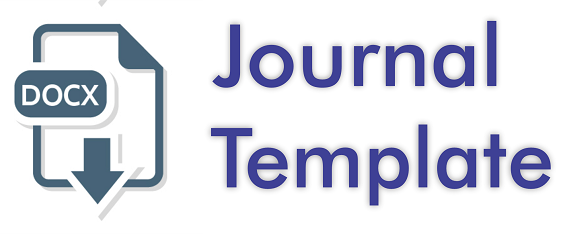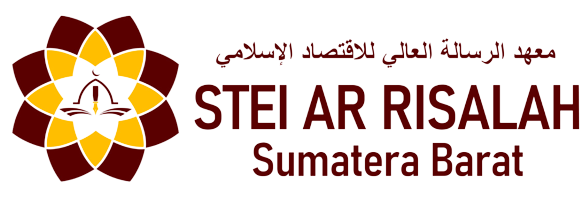Muslim Prosperous Family (MPF) Consumption in Koto Tuo Ujung Pasir Village: Is It Consistent with Islamic Consumption Behaviour?
DOI:
https://doi.org/10.59107/ri.v2i1.29Keywords:
Consumption Behavior, Islamic Consumption Behavior, Muslim Prosperous Family, Islamic EconomicsAbstract
This study aims to see the consumption behaviour of Muslim Prosperous Family (MPF) in Koto Tuo Ujung Pasir Village in line (consistent) with consumption behaviour Islamic economic. This study uses a qualitative approach, and data sources are collected from primary sources using Miles and Huberman model as a data analysis tool. The results of this study show consumption behaviour of MPF is in line with the consumption behaviour of Islamic economics, it can be seen from of balanced behaviour in consumption (such consumption for oneself, family, and Fisabilillah), spending wealth in halal and good ways. However, there are still some consumption behaviours of MPF that are not in line with consumption behaviour Islamic economics, it can be seen from in form of behaviour for oneself and the family that reflects more wasteful (Tabzir), royal (Israf), and also makes Ribawi loans at Conventional Banks in order to obtain luxury goods. This study can add to the existing reading of Islamic economics literature, because this study is based on the theory and concept of consumption behavior in Islamic economics to see MPF consumption behavior. This study also has many limitations, so it is open for further research to examine it in depth.
Downloads
References
Al-Faruqi, I.R. (1982). Al Tawhid: Its Implications for Thought and Life. IIIT, Herndon, VA.
Al-Qaradhawi, Yusuf. (2021). Norma dan Etika Ekonomi Islam. Jakarta, Gema Insani. ISBN; 9786022505679.
Agustiari, A., & Fauzi, M. (2021). Pendistribusian Zakat Bentuk Pinjaman Dalam Mengatasi Pedagang Usaha Mikro Dari Pinjaman Ribawi Di BAZNAS Kabupaten Kerinci. Jurnal Iqtisaduna, 7(2), 163–176. https://doi.org/10.24252/IQTISADUNA.V7I2.25402
Amin, H., Abdul-Rahman, A. R., & Abdul Razak, D. (2014). Theory of Islamic consumer behaviour: An empirical study of consumer behaviour of Islamic mortgage in Malaysia. Journal of Islamic Marketing, 5(2), 273-301. https://doi.org/10.1108/JIMA-06-2013-0042
Amir, A. (2015). Ekonomi Dan Keuangan Islam. Jakarta, Pustaka Muda.
Aprila, O., Syarif, D., Fauzi, M., & Muarif, Z. I. (2022). Dominasi Faktor Ekonomi Terhadap Keputusan Wanita Untuk Berkarier (Studi Kasus Di Kabupaten Kerinci). Journal of Islamic Economics and Bussiness Studies, 1(1), 9-22. https://doi.org/10.32939/jiebs.v1i1.8
Baining, M. E., & Ekawati. (2018). Pengaruh Pendapatan Terhadap Perilaku Konsumtif Mahasiswa Penerima Beasiswa Bidikmisi Di Kota Jambi. Jurnal Ekonomi Syari’ah, 6(1), 89–111. https://doi.org/10.15575/syh.v6i1.197
Cendra, C., Fauzi, M., Arzam, A., Novia, A., Hulwati, H., Bustami, Y., ... & Mursal, M. (2020). The Effect of Income with Household Consumption on The Welfare of Dodol Potato Businesses Assessed From Islamic Economic Concept. Dinar: Jurnal Ekonomi Dan Keuangan Islam, 7(2), 81–93. https://doi.org/10.21107/DINAR.V7I2.11214
Chai, Andreas & Moneta, Alessio. (2010). Retrospectives: Engel Curves. Journal of Economic Perspectives, 24(1), 225-240. https://doi.org/10.1257/jep.24.1.225
Cintyawaty, A., Ditama, R. A., & Fauzi, M. (2022). Persepsi Dan Preferensi Masyarakat Pesantren Terhadap Bank Syari’ah (Studi Kasus Masyarakat Pesantren Sumatera Barat). Qawwam: The Leader's Writing, 3(1), 21-36. https://doi.org/10.32939/qawwam.v3i1.154
Fauzi, M., & Fauzan, M. (2022). Pengaruh Store Atmosphere Terhadap Minat Beli Konsumen Pada Depati Vii Kopi Kota Sungai Penuh (Kerinci). EL MUDHORIB: Jurnal Kajian Ekonomi dan Perbankan Syariah, 3(2), 99-114. http://e-journal.iainfmpapua.ac.id/index.php/elmudhorib/article/view/443
Fauzi, M., Arzam, A., Novia, A., & Hulwati, H. (2022). KESEJAHTERAAN EKONOMI ISLAM: Bukti Dari Masyarakat Penerima Manfaat Badan Usaha Milik Desa (BUMDes) Karya Dermawan Dusun Dalam. An-Nisbah: Jurnal Ekonomi Syariah, 9(02), 375–409. https://doi.org/10.21274/an.v9i2.5930
Fauzi, M., Kusnadi, K., Musdizal, M., & Rafzan, R. (2022). Mata Uang Digital (Cryptocurrency): Apakah Statusnya Memenuhi Kriteria Harta (Maal) dan Mata Uang Dalam Islam?. Jurnal Hukum Ekonomi Syariah: AICONOMIA, 1(2), 72-87. https://doi.org/10.32939/acm.v1i2.2420
Fauzi, M., Asa’ari, A., Arzam, A., Mursal, M., Zufriani, Z., Novia, A., & Syarif, D. (2021). Welfare Beneficiary Community BUMDes Karya Dermawan Dusun Dalam Village. International Journal of Social Science and Business, 5(3), 319–325. https://doi.org/10.23887/IJSSB.V5I3.38621
Fauzi, M., Novia, A., Rahmat, P., Bustami, A. W., & Ditama, R. A. (2021). Islamic E-Service Quality (IESQ): Sebuah Model Konseptual. Maqdis: Jurnal Kajian Ekonomi Islam, 6(1), 59-76. http://dx.doi.org/10.15548/maqdis.v6i1.508
Furqani, H. (2017). Consumption and morality: Principles and behavioral framework in Islamic economics. Journal of King Abdulaziz University: Islamic Economics, 30(Special Issue), 89-102. https://doi.org/ 10.4197 / Islec. 30-SI.6
Ibrahim, A., Amelia, E., Akbar, N., Kholis, N., Utami, S. A., & Nofrianto. (2021). Pengantar Ekonomi Islam. (1st). Jakarta: Departemen Ekonomi dan Keuangan Syariah - Bank Indonesia. ISBN: 9786026004291
Idri. (2015). Hadis Ekonomi dalam Perspektif Hadis Nabi. Jakarta, Kencana
Kahf, M. (1978). The Islamic Economy: Analytical Study of the Functioning of the Islamic Economic System. Muslim Students Association, US and Canada.
Khan, M.F. (1984). Macro consumption function in an Islamic framework. Journal of Research in Islamic Economics, 1(2), 3-15.
Khan, M.A. (1994). An Introduction to Islamic Economics. International Institute of Islamic Thought and Institute of Policy Studies. Islamabad.
Khan, M.F. (1995). Essays in Islamic Economics, The Islamic Foundation, Leicester.
Mursal, M. et al. (2022). Moral Homo Islamicus (Islamic Man) Dalam Konteks Ekonomi Islam Modern. Jurnal Ilmiah Ekonomi Islam, 8(2), 1436–1441. https://doi.org/http://dx.doi.org/10.29040/jiei.v8i2.4849
Medias, F. (2018). Ekonomi Mikro Islam. Magelang: UNIMMA PRES.
Perdana, R. C., & Bandrang, T. N. (2020). Analisis Tingkat Konsumsi Dan Elastisitas Pendapatan Terhadap Penegluaran Pangan dan Non Pangan Karyawan PT Salanok Ladang Mas. MAHATANI: Jurnal Agribisnis (Agribisnis and Agricultural Economics Journal), 3(1), 184-194. http://dx.doi.org/10.52434/mja.v3i1.915
Raihani, H. R. H., Budiman, F., Sriwardona, S., & Fauzi, M. (2022). Etika Etika Pemanfaatan Sumber Daya Alam (SDA) Penggalian Batu Pecah Ditinjau Dari Perspektif Ekonomi Islam: Jurnal Iqtisaduna, 8(1), 16–25. https://doi.org/10.24252/IQTISADUNA.V8I1.27665
Rozalinda. (2014). Ekonomi Islam: Teori dan Aplikasinya pada Aktivitas Ekonomi. Jakarta: Rajawali Pers.
Rozalinda. (2015). Ekonomi Islam: Teori dan Aplikasinya pada Aktivitas Ekonomi, Jakarta: PT. Raja Grafindo Persada.
Sari, N., Syarif, D., Fauzi, M., & Mursal, M. (2021). Pengaruh Harga Kayu Manis Terhadap Kesejahteraan Petani Ditinjau Dalam Aspek Religiusitas. Jurnal Iqtisaduna, 7(2), 188–203. https://doi.org/10.24252/IQTISADUNA.V7I2.25648
Sartini, Surtani & Syahar, F. (2019 ). Pola Konsumsi Masyarakat Miskin Di Kecamatan Pangkalan Kuras Kabupaten Pelalawan Provinsi Riau. Jurnal Buana, 3(4), 727-731. ISSN: 2615-2630
Sitepu, N. I. (2016). Perilaku Konsumsi Islam Di Indonesia. Jurnal Perspektif Ekonomi Darussalam, 2(1), 91-106. ISSN: 2502-6976
Sugiyono. (2015). Metode Penelitian Kuantitatif, Kualitatif Dan R &. D. Bandung, Penerbit Alfabeta.
Suryati, D. (2017). Pola Konsumsi Pangan Dan Non Pangan Rumah Tangga Muslim Kaya Dan Rumah Tangga Muslim Miskin Di Kota Bima”. GaneÇ Swara, 11, (1), 162-167.
Syarif, D., Ditama, R. A., Fauzi, M., Mailindra, W., Mursal, M., & Lardiman, H. (2022). Pengaruh Konsumsi Islami Keluarga Muslim Sejahtera Terhadap Perilaku Konsumsi Sederhana Dengan Teori Yusuf Al-Qaradhawi (Studi Kasus Desa Koto Iman Kabupaten Kerinci). Jurnal Ekonomika, 14(01), 245–264. https://doi.org/https://doi.org/10.35334/jek.v14i01.2548.
Syarif, D., Hayati, D. R., Mursal, M., Mahabbati, S., & Fauzi, M. (2022). Analisis Strategi Pengembangan BMT Agam Madani di Banuhampu, Kabupaten Agam. Jihbiz: Jurnal Ekonomi, Keuangan dan Perbankan Syariah, 6(2), 117-127. https://doi.org/10.33379/jihbiz.v6i2.1265
Yafiz, M., Harahap, I., & Cahyanti, S. (2020). Consumption Behavior of Bidikmisi Scholarship Students With Religiosity As a Moderating Variable. Jurnal Ekonomi Dan Bisnis Islam (Journal of Islamic Economics and Business), 6(2), 239.
Yusuf, A. Muri. (2014). Metode Penelitian: Kuantitatif, Kualitatif, Dan Penelitian Gabungan. Jakarta, Kencana.
Downloads
Published
Issue
Section
License
Copyright (c) 2023 RISALAH IQTISADIYAH: Journal of Sharia Economics

This work is licensed under a Creative Commons Attribution 4.0 International License.
License
The non-commercial use of the article will be governed by the Creative Commons Attribution license as currently displayed on http://creativecommons.org/licenses/by/4.0/. This licence allows the user to distribute, remix, tweak, and build upon the licensed work, including for commercial purposes, as long as the original author is credited.
Author’s Warranties
The author warrants that the article is original, written by stated author/s, has not been published before, contains no unlawful statements, does not infringe the rights of others, is subject to copyright that is vested exclusively in the author and free of any third party rights, and that any necessary written permissions to quote from other sources have been obtained by the author/s.
User Rights
Under the Creative Commons Attribution license, the author(s) and users are free to share (copy, distribute and transmit the contribution).
Rights of Authors
Authors retain the following rights:
- copyright, and other proprietary rights relating to the article, such as patent rights,
- the right to use the substance of the article in future own works, including lectures and books,
- the right to reproduce the article for own purposes, provided the copies are not offered for sale,
- the right to self-archive the article.
Co-Authorship
If the article was prepared jointly with other authors, the signatory of this form warrants that he/she has been authorized by all co-authors to sign this agreement on their behalf, and agrees to inform his/her co-authors of the terms of this agreement.
Termination
This agreement can be terminated by the author or RISALAH IQTISADIYAH: JOURNAL OF SHARIA ECONOMICS upon two months’ notice where the other party has materially breached this agreement and failed to remedy such breach within a month of being given the terminating party’s notice requesting such breach to be remedied. No breach or violation of this agreement will cause this agreement or any license granted in it to terminate automatically or affect the definition of RISALAH IQTISADIYAH: JOURNAL OF SHARIA ECONOMICS.
Royalties
This agreement entitles the author to no royalties or other fees. To such extent as legally permissible, the author waives his or her right to collect royalties relative to the article in respect of any use of the article by RISALAH IQTISADIYAH: JOURNAL OF SHARIA ECONOMICS or its sublicensee.
Miscellaneous
RISALAH IQTISADIYAH: JOURNAL OF SHARIA ECONOMICS will publish the article (or have it published) in the Journal, if the article’s editorial process is successfully completed and RISALAH IQTISADIYAH: JOURNAL OF SHARIA ECONOMICS or its sublicensee has become obligated to have the article published. RISALAH IQTISADIYAH: JOURNAL OF SHARIA ECONOMICS may conform the article to a style of punctuation, spelling, capitalization and usage that it deems appropriate. The author acknowledges that the article may be published so that it will be publicly accessible and such access will be free of charge for the readers. RISALAH IQTISADIYAH: JOURNAL OF SHARIA ECONOMICS will be allowed to sublicense the rights that are licensed to it under this agreement.



.png)
.png)






